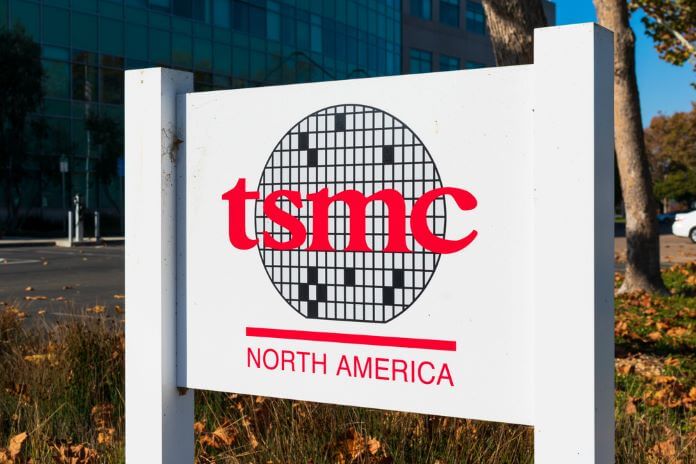Semiconductor stocks were mostly down on Thursday even though Taiwan Semiconductor (NYSE:TSM), which produces chips for some of the most popular tech companies like Nvidia(NASDAQ:NVDA) and Apple (NASDAQ:AAPL), reported solid second-quarter results and expressed “great confidence” about its prospects.
In premarket trading, Taiwan Semiconductor shares increased by more than 1.5% to $82.64. Advanced Micro Devices (NASDAQ:AMD), a TSM client, increased by less than 1%, primarily as a result of an upgrade.
However, other chipmakers, including Qorvo (NASDAQ:QRVO), Skyworks Solutions (NASDAQ:SWKS), and Micron Technology (NASDAQ:MU), experienced a 1% decline, while Nvidia (NASDAQ:NVDA), Marvell Technologies (NASDAQ:MRVL), Qualcomm (NASDAQ:QCOM), and Intel (NASDAQ:INTC) also experienced slight declines.
Earlier projections expected the chipmaker to earn $1.50 per share on $17.58 billion in revenue, but TSM surpassed these expectations earning $1.55 per share on $18.16 billion in revenue for the quarter ending June 30. The operating margin and net profit margin for the quarter were 49.1% and 44.4%, respectively, while the gross margin was 59.1%.
Going forward, Taiwan Semiconductor (NYSE:TSM) stated that it anticipates third-quarter revenue to be between $19.8 billion and $20.6 billion, with gross margins between 57.5% and 59.5%, significantly higher than analysts’ forecast of $18.48 billion in sales for the quarter.
“Our second quarter business was supported by HPC, IoT and Automotive-related demand,” said Wendell Huang, VP and Chief Financial Officer of TSMC, in a statement. “Moving into third quarter 2022, we expect our business to be supported by continued demand for our industry-leading 5nm and 7nm technologies.”
Reuters recently reported that Taiwan Semiconductor (NYSE:TSM) also revealed that some of its demand was declining as its consumer electronics clients sought to cut inventory.
“After two years of pandemic-driven stay-home demand, this type of adjustment is reasonable in our view,” Taiwan Semiconductor (NYSE:TSM) Chief Executive Officer C. C. Wei said during the online earnings briefing.
Taiwan Semiconductor Demand is Still Strong
According to Wei, however, Taiwan Semiconductor’s long-term demand is “firmly in place,” and the company anticipates that “capacity will remain tight and its business will be more resilient” as a result.
The statement appears to echo the Taiwanese Economy Minister’s statement earlier this month, indicating that Taiwan Semiconductor (NYSE:TSM) and the country’s broader semiconductor industry had filled up their order books for both mature and advanced semiconductor nodes. As a matter of fact, Taiwanese chip makers emerged as one of the primary beneficiaries of the global semiconductor shortage, allowing their factories to operate at capacity.
But as a result of delays in the delivery of some equipment, the chip maker, which had previously projected spending to be between $40 billion and $44 billion, said that capex was likely to come in at the lower end of that range. Back in May, the company had reported that it would start raising prices starting next year, attributing the move to increasing inflation.
On a year-to-date basis, Taiwan Semiconductor (NYSE:TSM) has shed approximately a third of its value as investors got spooked by declining PC sales, the challenging macroeconomic environment for semiconductors, and the increase in R&D and production costs of the 3nm and 2nm chips
Although the chip maker’s business has always been cyclical, the recent sell-off has caused the stock to now trade at about 13x forward earnings implying that any positive news about the sector could send the stock soaring.
The good news is that the semiconductor industry’s future remains promising, with Deloitte expecting at least a 10% growth propelling the market to over $600 billion in 2022 for the first time ever.
Even with the inventory correction still in play, there’s a strong possibility that this could turn out to be a growth year for Taiwan Semiconductor (NYSE:TSM) due to increasing sales of several products, such as data centers.
Featured Image: Depositphotos ©MichaelVi















